

João Bocas is an expert and keynote speaker in wearable technology and is a globally recognized business thought leader, mentor, advisor, and entrepreneur. His passion lies in helping others, sharing experiences, transferring knowledge, working collaboratively, and helping businesses adopt the latest digital trends and innovations.
As a thought leader in wearable technologies, digital health, IoT and healthcare innovation, including AI (artificial intelligence), robotics and ML (machine learning), João explores the intersection of technology and business. This includes examining how new technologies continuously shape consumer behaviour, influence business models, and help brands amplify their message. He also analyses the impact of disruptive innovations and shares future trends in the marketplace.
With over 25 years of hands-on experience in Professional Sport and Corporate environments working with senior management, Boards and executive teams, João has worked across Healthcare, Financial Services, Media, Sporting, and Third and Public Sector organisations. He has also amassed an admirable array of 17 formal professional qualifications while studying sport for 8 years.
He was a Finalist in the Great British Entrepreneurs Awards 2015, a Top 100 Global Digital Health Influencer, and is a global advisor and board member of several tech companies.
( Co-Author of XPOMET - 360° Next Generation Healthcare ): Wearables Combined with AI ( artificial intelligence ) will be the game changer in Healthcare.
Available For: Advising, Consulting, Influencing, Speaking
Travels From: London, United Kingdom
Speaking Topics: Wearables | Digital Health | Healthcare | Influencer Marketing/Social Media and Entrepreneurship
| João Bocas - The Wearables Expert ™ | Points |
|---|---|
| Academic | 0 |
| Author | 876 |
| Influencer | 301 |
| Speaker | 55 |
| Entrepreneur | 50 |
| Total | 1282 |
Points based upon Thinkers360 patent-pending algorithm.
 Elevate Your Healthcare Leadership
Elevate Your Healthcare Leadership
Tags: AI, Emerging Technology, HealthTech
 Transforming Healthcare with Wearables and AI
Transforming Healthcare with Wearables and AI
Tags: AI, Emerging Technology, HealthTech
 Cleveland Clinic & AI Solutions for Healthcare
Cleveland Clinic & AI Solutions for Healthcare
Tags: AI, Emerging Technology, HealthTech
 Will 2025 Be the Year of Wearables?
Will 2025 Be the Year of Wearables?
Tags: AI, Emerging Technology, HealthTech
 Will 2025 Be the Year of Wearables?
Will 2025 Be the Year of Wearables?
Tags: AI, Emerging Technology, HealthTech
 HealthTech Leaders Dinner – New York City
HealthTech Leaders Dinner – New York City
Tags: Agile, Emerging Technology, HealthTech
 5 Digital Health Trends for 2025: Revolutionizing Healthcare Through Innovation
5 Digital Health Trends for 2025: Revolutionizing Healthcare Through Innovation
Tags: AI, Emerging Technology, HealthTech
 Why Wearables Are Failing Healthcare: The Untapped Potential of Health Data
Why Wearables Are Failing Healthcare: The Untapped Potential of Health Data
Tags: AI, Emerging Technology, HealthTech
 Personalized Healthcare through Digital Tools
Personalized Healthcare through Digital Tools
Tags: AI, Emerging Technology, HealthTech
 AI in Healthcare: Real Applications Making a Difference Today
AI in Healthcare: Real Applications Making a Difference Today
Tags: AI, Emerging Technology, HealthTech
 Mastering Series A Funding in Digital Health: A Comprehensive Guide to Success in 2024/25
Mastering Series A Funding in Digital Health: A Comprehensive Guide to Success in 2024/25
Tags: AI, Emerging Technology, HealthTech
 The Telehealth Revolution: Pioneering Innovations Shaping the Future of Healthcare
The Telehealth Revolution: Pioneering Innovations Shaping the Future of Healthcare
Tags: AI, Emerging Technology, HealthTech
 8 Compelling Reasons to Use Wearables for Improving Your Health
8 Compelling Reasons to Use Wearables for Improving Your Health
Tags: AI, Emerging Technology, HealthTech
 The Transformative Power of Technology in Healthcare: A Personal Perspective
The Transformative Power of Technology in Healthcare: A Personal Perspective
Tags: AI, Emerging Technology, HealthTech
 Personalized Medicine and AI: Tailoring Healthcare with Artificial Intelligence
Personalized Medicine and AI: Tailoring Healthcare with Artificial Intelligence
Tags: AI, Emerging Technology, Healthcare
 Unlocking 6 Advantages of Remote Patient Monitoring in Healthcare
Unlocking 6 Advantages of Remote Patient Monitoring in Healthcare
Tags: AI, Emerging Technology, Healthcare
Tags: AI, Emerging Technology, HealthTech
 Is the Utilization of Telemedicine in Mental Health Truly Beneficial? A Comprehensive Examination
Is the Utilization of Telemedicine in Mental Health Truly Beneficial? A Comprehensive Examination
Tags: AI, Emerging Technology, HealthTech
 The Transformative Power of Nursing Informatics: Unveiling 8 Benefits for Healthcare Excellence
The Transformative Power of Nursing Informatics: Unveiling 8 Benefits for Healthcare Excellence
Tags: AI, Emerging Technology, HealthTech
 What is MedTech and How is it Helping Clinicians and Patients?
What is MedTech and How is it Helping Clinicians and Patients?
Tags: AI, Emerging Technology, HealthTech
 Empowering Patient Education and Engagement through Health Information Technology
Empowering Patient Education and Engagement through Health Information Technology
Tags: AI, Healthcare, HealthTech
 The Impact of Wearables on Healthcare: From Wrist to Wellness
The Impact of Wearables on Healthcare: From Wrist to Wellness
Tags: AI, Emerging Technology, HealthTech
 Data Analytics and AI: Powering Value-Based Care
Data Analytics and AI: Powering Value-Based Care
Tags: AI, Emerging Technology, HealthTech
 7 Digital Health Sectors and Emerging Trends
7 Digital Health Sectors and Emerging Trends
Tags: AI, Emerging Technology, HealthTech
 The Intersection of Mental Health and Digital Solutions: Bridging the Gap
The Intersection of Mental Health and Digital Solutions: Bridging the Gap
Tags: AI, Emerging Technology, HealthTech
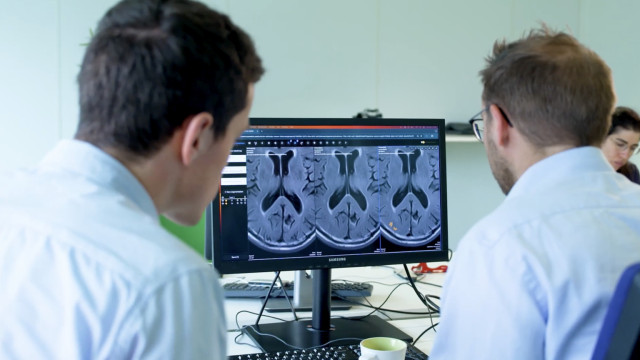 The Technological Revolution in Alzheimer’s Care: Transforming Detection, Treatment, and Patient Support
The Technological Revolution in Alzheimer’s Care: Transforming Detection, Treatment, and Patient Support
Tags: AI, Emerging Technology, HealthTech
 The Future of Aging: A Value-Based Perspective on Health and Wellness
The Future of Aging: A Value-Based Perspective on Health and Wellness
Tags: AI, Emerging Technology, HealthTech
 Digital Consultations: A 4x Boost to Heart Failure Care
Digital Consultations: A 4x Boost to Heart Failure Care
Tags: AI, Emerging Technology, HealthTech
 Telehealth Transformation: A Glimpse into the Future
Telehealth Transformation: A Glimpse into the Future
Tags: AI, Emerging Technology, HealthTech
 Unlocking Inclusive Healthcare Through Health Data Collaboration
Unlocking Inclusive Healthcare Through Health Data Collaboration
Tags: AI, Emerging Technology, HealthTech
 Wearable Tech Revolution: Transforming Healthcare in the Palm of Your Hand
Wearable Tech Revolution: Transforming Healthcare in the Palm of Your Hand
Tags: AI, Emerging Technology, HealthTech
 Innovating Healthcare: Digital Solutions at HLTH Europe
Innovating Healthcare: Digital Solutions at HLTH Europe
Tags: AI, Emerging Technology, HealthTech
 Why Technology Adoption is the Lifeline of Modern Healthcare Systems
Why Technology Adoption is the Lifeline of Modern Healthcare Systems
Tags: AI, Emerging Technology, HealthTech
 8 Remote Patient Monitoring Companies Revolutionizing Patient Care
8 Remote Patient Monitoring Companies Revolutionizing Patient Care
Tags: AI, Emerging Technology, HealthTech
 IoMT on Healthcare: Benefits and Risks for Patients, Doctors and Healthcare Systems
IoMT on Healthcare: Benefits and Risks for Patients, Doctors and Healthcare Systems
Tags: AI, Emerging Technology, HealthTech
 The Transformative Power of AI in Healthcare
The Transformative Power of AI in Healthcare
Tags: AI, Emerging Technology, HealthTech
 The Intersection of Telehealth and Mental Wellbeing
The Intersection of Telehealth and Mental Wellbeing
Tags: AI, Emerging Technology, HealthTech
 Embracing the Era of Connected Care: The Future of Healthcare Delivery
Embracing the Era of Connected Care: The Future of Healthcare Delivery
Tags: AI, Emerging Technology, HealthTech
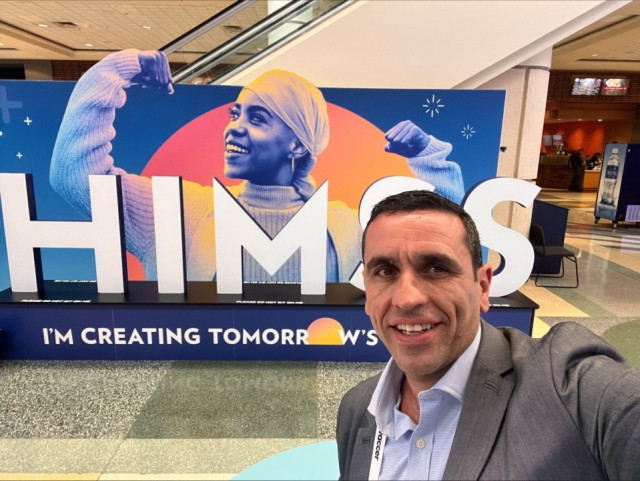 Exploring the Future of Healthcare Technology at #HIMSS24
Exploring the Future of Healthcare Technology at #HIMSS24
Tags: AI, Emerging Technology, HealthTech
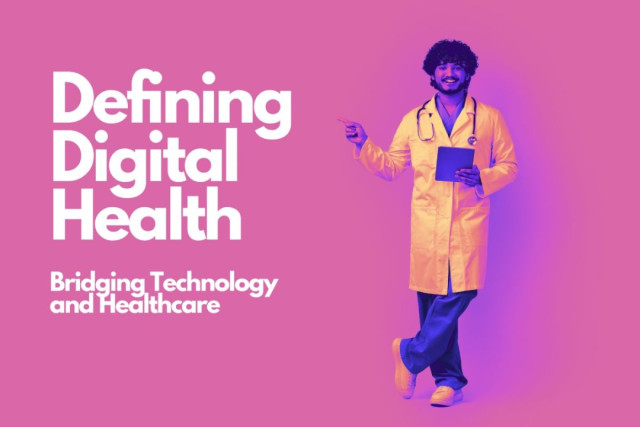 Defining Digital Health: Bridging Technology and Healthcare
Defining Digital Health: Bridging Technology and Healthcare
Tags: AI, Emerging Technology, HealthTech
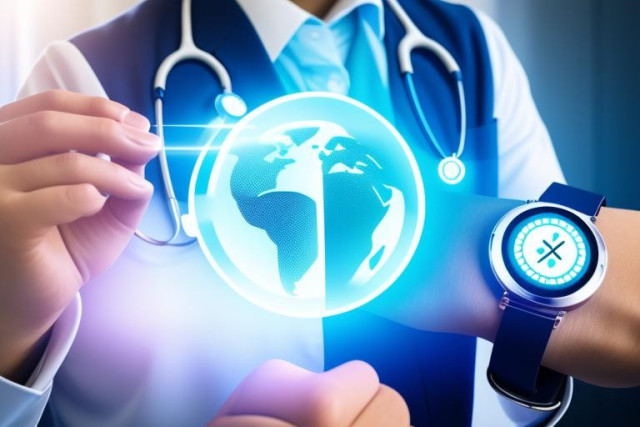 The Impact of Wearable Technologies in Global Healthcare
The Impact of Wearable Technologies in Global Healthcare
Tags: AI, Emerging Technology, HealthTech
 The Evolution of Telemedicine for Aging Adults
The Evolution of Telemedicine for Aging Adults
Tags: AI, Emerging Technology, HealthTech
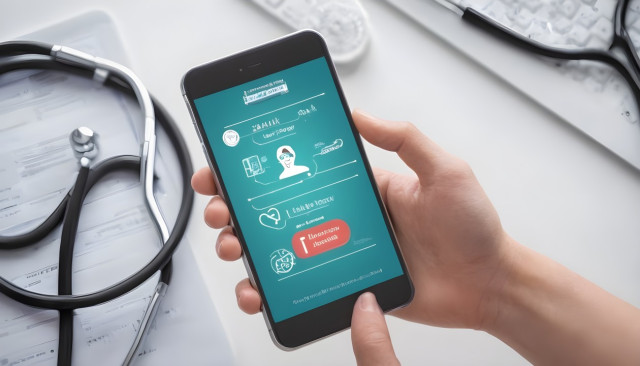 5 Healthcare Technology Trends in 2024
5 Healthcare Technology Trends in 2024
Tags: AI, Emerging Technology, HealthTech
 The Impact of Wearables on Mental Health
The Impact of Wearables on Mental Health
Tags: AI, Emerging Technology, HealthTech
 How to Fix Healthcare using Generative AI
How to Fix Healthcare using Generative AI
Tags: AI, Emerging Technology, HealthTech
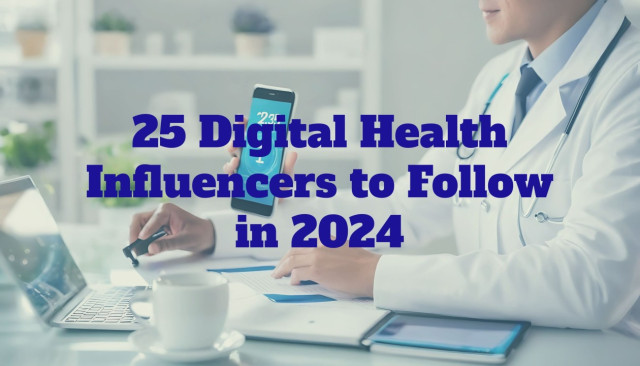 25 Digital Health Influencers to Follow in 2024
25 Digital Health Influencers to Follow in 2024
Tags: Emerging Technology, Health and Wellness, HealthTech
 10 Breakthroughs in Telehealth Reshaping Rural Healthcare for the Better
10 Breakthroughs in Telehealth Reshaping Rural Healthcare for the Better
Tags: Emerging Technology, Health and Wellness, HealthTech
 Top 10 Health Wearables News in 2023
Top 10 Health Wearables News in 2023
Tags: Emerging Technology, Health and Wellness, HealthTech
 The Power of Wearables in Reshaping Healthcare Delivery
The Power of Wearables in Reshaping Healthcare Delivery
Tags: Digital Transformation, Emerging Technology, HealthTech
 Top 10 Digital Health News in 2023
Top 10 Digital Health News in 2023
Tags: AI, Emerging Technology, HealthTech
Tags: AI, Healthcare, HealthTech
 360 Next Generation Healthcare
360 Next Generation Healthcare
Tags: Emerging Technology, Entrepreneurship, HealthTech
Tags: Business Strategy, Entrepreneurship, Social
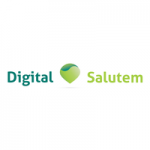 Digital Salutem
Digital Salutem
Tags: Healthcare, HealthTech, Innovation
 HPE Sales Certified - Aruba Products and Solutions
HPE Sales Certified - Aruba Products and Solutions
Issued Nov, 2020 – Expired Nov, 2022
Tags: Healthcare, HealthTech, Innovation
Tags: HealthTech, Healthcare
Tags: HealthTech, Healthcare
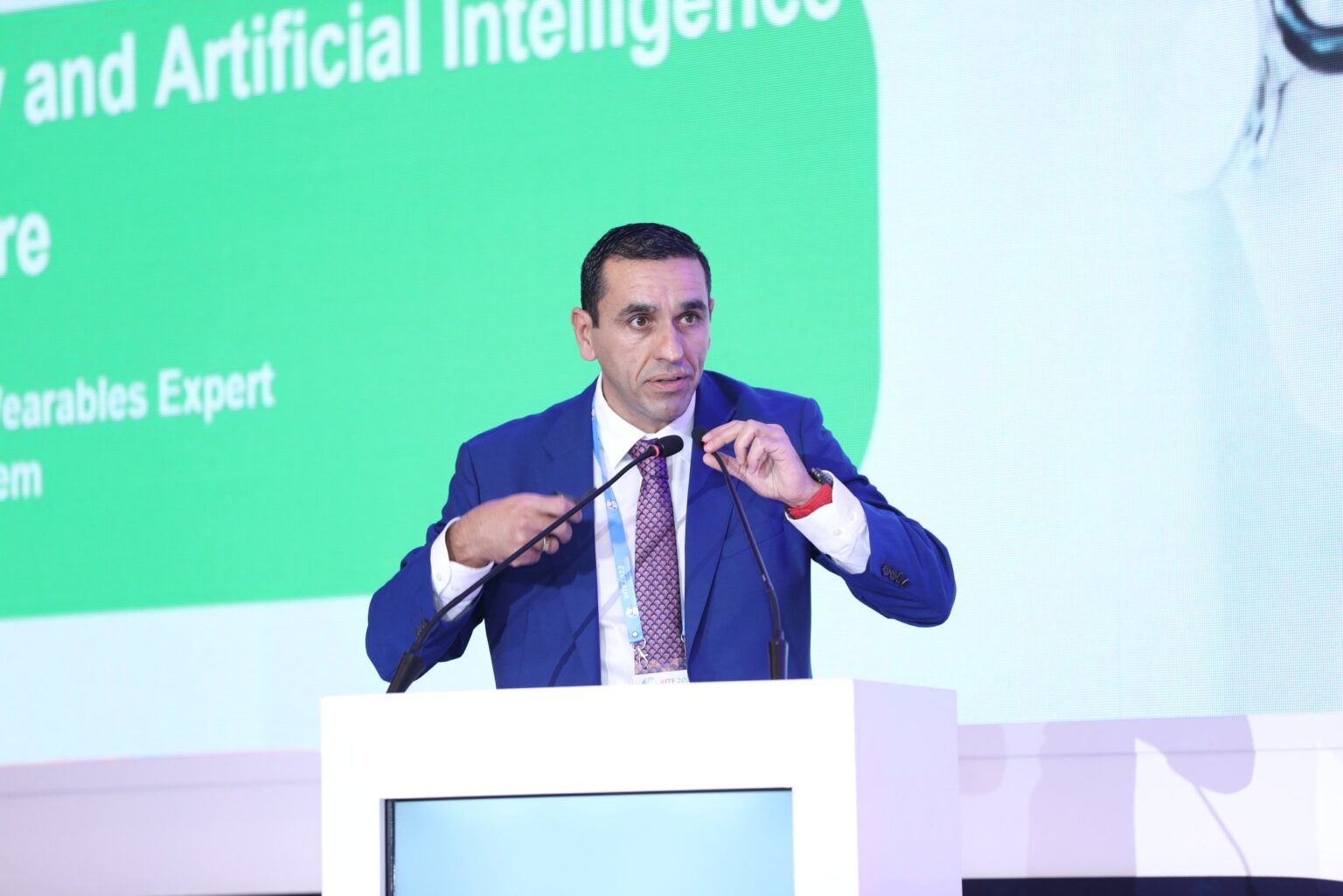 International Healthcare Travel Forum 2022
International Healthcare Travel Forum 2022
Tags: AI, Emerging Technology, HealthTech
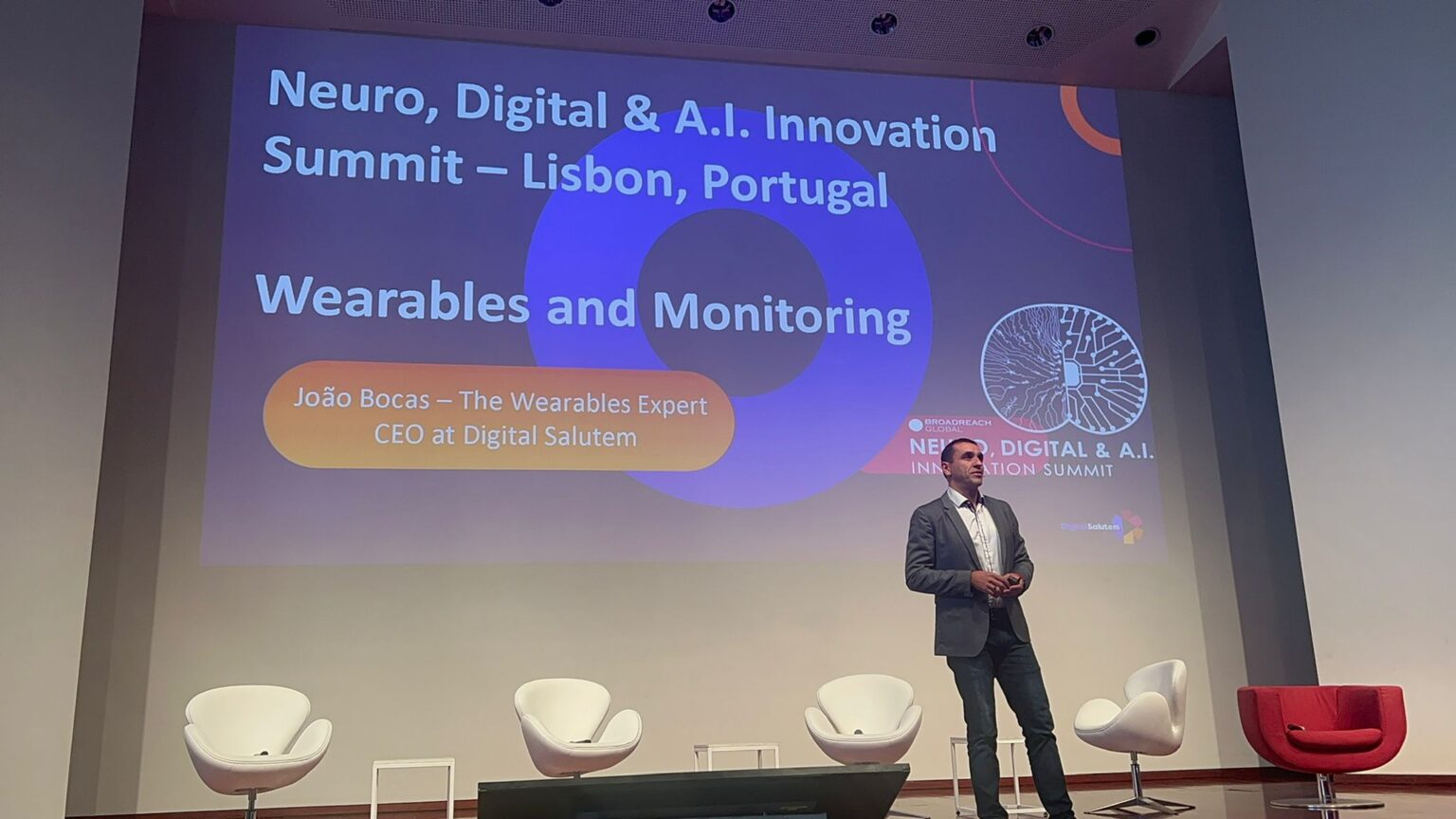 Our Presence at The Neuro, Digital, AI and Innovation Summit
Our Presence at The Neuro, Digital, AI and Innovation Summit
Tags: AI, Innovation, HealthTech
 What's Next Wearable Technology
What's Next Wearable Technology
Tags: Emerging Technology, HealthTech, Entrepreneurship

Tags: Emerging Technology, HealthTech, Entrepreneurship

Tags: Digital Transformation, HealthTech, Entrepreneurship

Tags: Health and Wellness, Healthcare, HealthTech

Tags: HealthTech, Leadership, Health and Wellness

Tags: AI, HealthTech, Data Center

Tags: Digital Transformation, HealthTech, Healthcare

Tags: Digital Transformation, Social, HealthTech

Tags: Innovation, HealthTech

Tags: AI, Digital Transformation, HealthTech

Tags: Digital Transformation, HealthTech, COVID19

Tags: AI, Innovation, HealthTech

Tags: Digital Transformation, HealthTech

Tags: Innovation, HealthTech, Leadership

Tags: AI, Innovation, HealthTech

Tags: Big Data, HealthTech, Privacy

Tags: Digital Transformation, HealthTech, Leadership

Tags: Innovation, HealthTech, Leadership

Tags: Digital Transformation, HealthTech, Leadership

Tags: Innovation, HealthTech, Leadership

Tags: Digital Transformation, HealthTech, Leadership

Tags: Digital Transformation, Mobility, HealthTech

Tags: Digital Transformation, Mobility, HealthTech

Tags: Digital Transformation, Mobility, HealthTech
Tags: AI, Digital Transformation, HealthTech

Tags: Emerging Technology, Innovation, HealthTech

Tags: Emerging Technology, HealthTech, Healthcare

Tags: AI, Emerging Technology, HealthTech

Tags: AI, Emerging Technology, HealthTech

Tags: AI, Emerging Technology, HealthTech

Tags: AI, Emerging Technology, HealthTech

Tags: AI, Emerging Technology, HealthTech

Tags: AI, Emerging Technology, HealthTech

Tags: AI, Emerging Technology, HealthTech

Tags: AI, Emerging Technology, HealthTech

Tags: AI, Emerging Technology, HealthTech

Tags: Digital Transformation, Emerging Technology, HealthTech

Tags: AI, Emerging Technology, HealthTech

Tags: AI, Emerging Technology, HealthTech

Tags: AI, Emerging Technology, HealthTech

Tags: AI, Emerging Technology, HealthTech

Tags: AI, Emerging Technology, HealthTech

Tags: AI, Emerging Technology, HealthTech

Tags: AI, Emerging Technology, HealthTech

Tags: AI, Emerging Technology, HealthTech

Tags: AI, Emerging Technology, HealthTech

Tags: AI, Emerging Technology, HealthTech

Tags: AI, Emerging Technology, HealthTech

Tags: AI, Emerging Technology, HealthTech

Tags: AI, Emerging Technology, HealthTech

Tags: Emerging Technology, HealthTech, Entrepreneurship

Tags: AI, Emerging Technology, HealthTech
Tags: AI, Emerging Technology, HealthTech

Tags: Emerging Technology, HealthTech, Healthcare

Tags: Digital Transformation, Innovation, HealthTech

Tags: Digital Transformation, Emerging Technology, HealthTech

Tags: AI, HealthTech

Tags: AI, HealthTech, Marketing

Tags: AR/VR, Emerging Technology, HealthTech

Tags: Social, Health and Wellness

Tags: Emerging Technology, Mobility, COVID19

Tags: Digital Transformation, Emerging Technology, HealthTech

Tags: Digital Transformation, Innovation, HealthTech

Tags: Digital Transformation, Innovation, HealthTech

Tags: Digital Transformation, Mobility, HealthTech

Tags: Digital Transformation, Mobility, HealthTech

Tags: Digital Transformation, Mobility, HealthTech
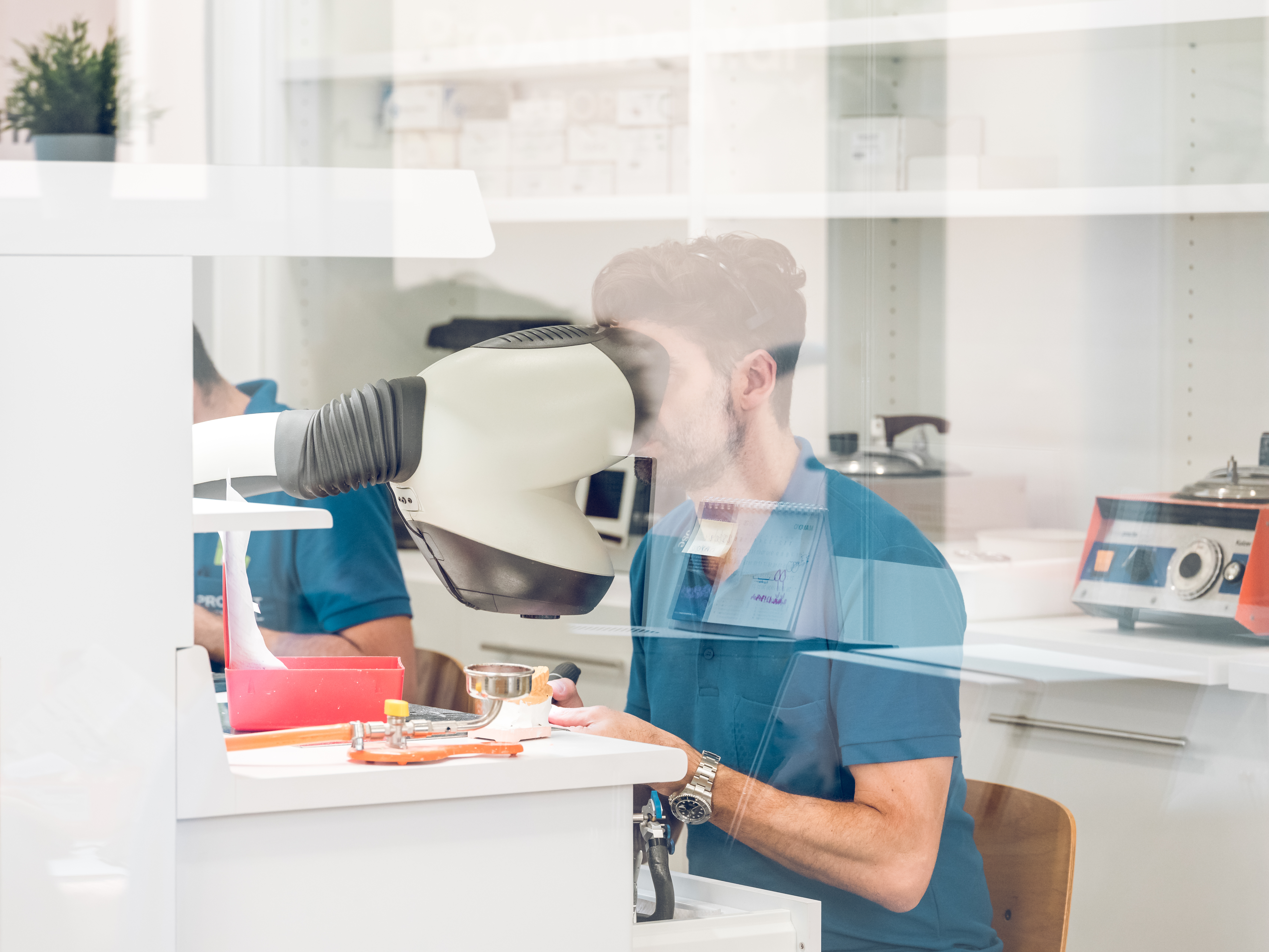 How Does Genomic Sequencing Advance Precision Medicine?
How Does Genomic Sequencing Advance Precision Medicine?
Precision medicine is a medical methodology or model that aims to optimize efficiency around a specific therapeutic area for specific groups of patients, especially by using genetic or molecular profiling. Although precision medicine is a relatively new term, the concept has been part of healthcare for quite some time. This approach will enable doctors and researchers to select treatments based on a genetic understanding of the patient’s diseases, as opposed to a one-size-fits-all approach in which disease treatment is developed for “average patients” with less consideration of the differences between them.
Since precision medicine is a more tailored and precise way of diagnosing and treating disease, more patients can be diagnosed quickly and accurately, which means our overall health outcomes can be improved. For example, by using precision medicine to treat cancer, the doctor will aim to achieve early detection by using data and diagnostics first. Personalized treatment will then be designed to target the disease areas for more effective treatment intervention with certain drugs proving more effective for specific genetic profiles. It can also reduce the cost of treatment we are going to pay by eliminating ineffective treatment plans.
As precision medicine recognizes that while two people might share the same disease, one might respond to a particular treatment differently than the other based on their genetic and biological make-up. It leads to the point that genomic sequencing technology is a key driver of precision medicine, which has improved substantially in accuracy, speed, and cost. It has a great impact on stratifying cancer, characterizing genetic diseases, and providing information about an individual’s potential response to treatment. Thus, helping to identify, track, and control infectious disease outbreaks for large numbers of individuals
At the forefront of this technology is MGI, a leading company that is committed to this area with its latest sequencing technology* and state-of-the-art automation products. They are working successfully in the precision medicine domain aiming to improve the quality of the existing way of sample collection as well as lower the cost of high-throughput sequencing. MGI has developed its microbe genome sequencing technology*, which allows us to analyze hundreds or thousands of samples quickly and easily so that we can start making connections between different populations' microbiomes and their health outcomes much more quickly than before. For instance, the technology will allow us to build maps that compare people living in different areas around the world based on their microbes—and then use those maps as a jumping-off point for further research into how these communities differ genetically, culturally, or geographically.
Furthermore, we can redesign healthcare systems based on highly personalized data sets, where patterns can be identified, analyzed, and predicted to establish future interventions based on very high effective treatment methodologies and a high chance of early diagnostics success.
The results clearly outlined that the power of choice to sequencing represents a huge benefit to all of us and to humanity as a whole.
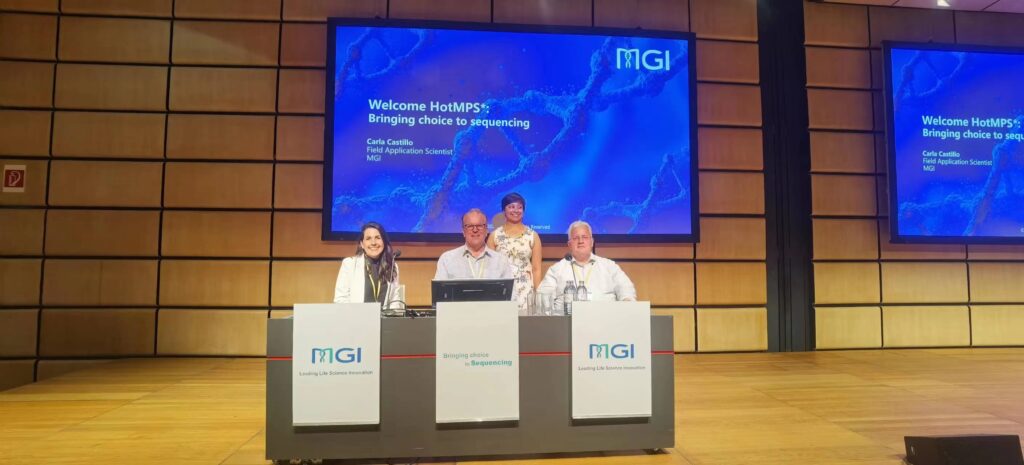
Recently in ESHG, MGI has revealed the HotMPS**, new sequencing chemistry that brings choice to sequencing.
The HotMPS chemistry** is designed to run on the DNBSEQ-G400 platform***, which runs up to two flow cells and has a data output ranging from 75 Gb to 360 Gb per flow cell, depending on read length, which can be 50 bp or 100 bp single-end reads or 50 bp or 100 bp paired-end reads. The plan is to increase read length to 150 bp paired-end reads later this year. Existing DNBSEQ-G400 instrument*** will need a software upgrade to make them compatible with the new chemistry and will no longer be able to run the StandardMPS chemistry* after that. MGI also plans to make its high-throughput DNBSEQ-T7 platform* compatible with HotMPS chemistry** soon, also through a software upgrade.
István Szatmári of the University of Debrecen in Hungary has also been using the DNBSEQ-G400* in his lab for the last few years and showed performance data comparing the StandardMPS* versus the HotMPS** chemistry. Comparable results were found, and his conclusion is that his findings demonstrate that the DNBSEQ-G400 system*** combined with the HotMPS** chemistry is very suitable for global transcript profiling. He also mentioned that sequencing costs were low with the DNBSEQ-G400***.
This ground-breaking technology certainly brings immense value to the Digital Health, Life Sciences, and Healthcare Industries. Innovation is advancing rapidly. Yet, we cannot always feel the impact and the results right away. MGI created this very special and unique product, HotMPS**, to help us to see the impacts right way in the society and potential to significantly impact humanity like no other. It is worth mentioning that MGI has just made its HotMPS sequencing chemistry and instruments commercially available in the UK as of July 6.
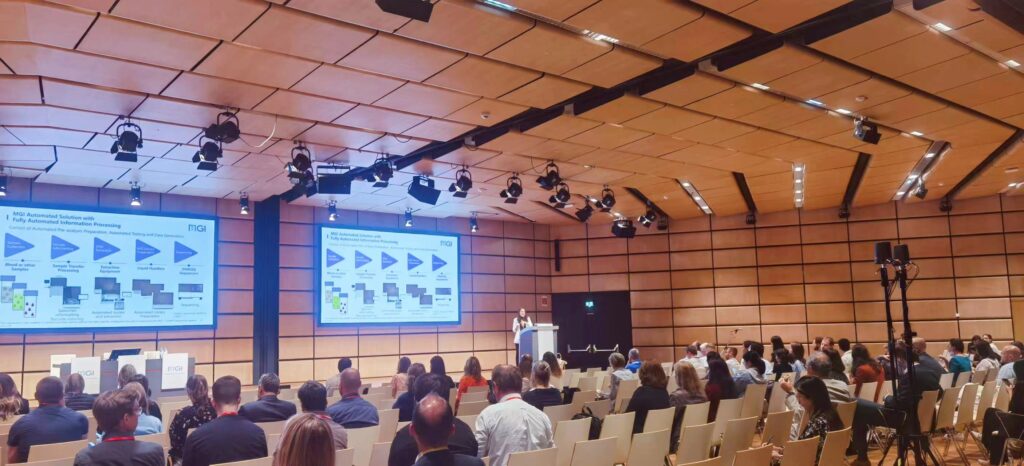
MGI partnered and collaborated with a group of leading researchers, including Prof. Engstrand, director of the Centre for Translational Microbiome Research, bringing MMHP (Million Microbiomes for Humans Project) to live.
At the ESHG 2022, Prof. Engstrand has shared his findings so far as all the data is generated by the DNBSEQ-G400*** using HotMPS chemistry** in their working fields of expertise. The HotMPS technology** has contributed significantly to the success of this project by facilitating many aspects of the data processing and assuring high quality and high accuracy sequencing at all levels of the information.
The expect result was outstanding, as an outcome MGI enabled metagenomic sequencing for the first 43,000 samples on MGI’s sequencers*. The project gathers scientists from China, Sweden, Denmark, France, and Latvia agreed to collaborate on the large-scale microbial metagenomic project. The results of the project shall be available to the research community.
In a statement, an MGI spokesperson stressed that the company did not deliver any sequencing kits to Engstrand or elsewhere in Sweden after the preliminary injunction resulting from Illumina's lawsuit took effect. Also, the comparison data Engstrand presented during the workshop was generated at MGI's Latvia facility.
MGI's involvement has been crucial to the progress of the "Million Microbiome of Humans Project", launched at the 14th International Conference on Genomics in 2019. The MMHP aims to sequence and analyze one million intestinal, oral, skin, and reproductive-tract samples and other organs in the next three to five years, with MGI's sequencing platform* supporting the international scientific endeavor. The project intends to construct a microbiome map of the human body and build the world’s largest database of the human microbiome ever, which will provide vital insights into formulating improved diagnostic and treatment methods for precision medicine.
To conclude, we are experiencing a major revolution in the Healthcare Industry, however, the presence of highly reliable data is still a major challenge, in the article we can really have a sense of what is possible and where we are heading. Precision Medicine combined with Human Genetic diagnostics will be a truly powerful combination, bringing trust, reliability, and impact to the industry as a whole. In long term, the overall diagnosis and medical management of many diseases will be improved, allowing us to treat diseases in the most efficient way.
*Unless otherwise informed, StandardMPS and CoolMPS sequencing reagents, and sequencers for use with such reagents are not available in Germany, USA, Spain, UK, Hong Kong, Sweden, Belgium, Italy, Finland, Czech Republic, Switzerland, Portugal, Austria, and Romania.
**This sequencing reagent is only available in selected countries.
***This sequencer is only available in selected countries, and its software has been specially configured to be used in conjunction with MGI’s HotMPS sequencing reagents exclusively.
Contact us for more relevant details. Check our YouTube Channel, Digital Health & Wearables Series. To find out more about how we can help you with your Digital Healthcare Transformation, Healthcare organizational growth, or Healthcare brand positioning, please get in touch via phone +44 (0) 203 3620421 or via e-mail: info@digitalsalutem.com
Tags: Health and Wellness, HealthTech, Innovation
 The Future of Healthcare Data
The Future of Healthcare Data
The Future of healthcare data and digital health will be a more patient-centered approach where data is shared and systems are interoperable. Technology continues to play more of a role in healthcare. This is all part of the drive to bring collaboration and efficiency to healthcare records, improve safety and increase treatment options.
The healthcare data that we collect about our patients puts us in an interesting position. We have real value for them through their medical history, but we have no right or obligation to them or their families unless they opt-in, which means that once we start collecting data on patients through our own devices they can choose not share it with us at all (or not at all).
This has been going on for decades with insurance companies collecting data from insurances, social networks collecting data from users who want it on their profiles, and so on.
So what does this mean? It means that once you start gathering information about your patients you need to make sure your information isn’t being shared across different companies. For example, if you have a device that collects location information while you’re using it: if Google Maps is integrated into your operating system (it doesn’t have to be), then you shouldn’t use any other sort of map app on your phone (other than Google Maps) nor should you hold Google Maps ransom if someone else uses it differently than you do (other than asking them not to use it), because no one wants their data sold off without any control over how it’s used across multiple different apps.
There should also be some control between providers too: some form of permission system should exist between providers and patients so that patients can control what information they want shared across providers – be it insurance companies, drug companies or any other party that has access to usage data about their specific patient(s). This way though there should also be some way for providers like hospitals or doctors’ offices
Healthcare data is an increasingly important part of the digital health puzzle. As healthcare organizations digitize and standardize their systems, patients, clinicians and providers need to be able to work together to reduce costs, improve care and increase efficiency.
Many healthcare providers are already updating their systems for digital inclusion, which means that the data in your system can be shared with your peers via a cloud service or mobile app. It also means that you’ll need to be able to find what you want – something that’s particularly valuable when you’re working with national databases like CDC’s Healthcare Quality Reporting System (HQRS) or Medicare’s Clinical Data Exchange (CDE).
As part of this effort, healthcare providers need access to faster and more accurate data to help them make better decisions about patient care. But those data are not always in your control, especially when it comes to security breaches. How do you ensure that your data is safe? What can you do if someone breaks into your computer system?
Digital transformation has been happening everywhere in healthcare since the turn of the millennium (the year 2000), but it may have finally reached its peak today. With new technology and greater user expectations across all sectors of care, maybe it’s time for doctors, patients and employers alike to have a conversation about how digital transformation will impact everyone involved in health care.
In the last few years, the pace of change has accelerated and the pace of disruption has escalated, as the number of digital products and services grows exponentially. This is not limited to software or even computer-based technologies — there is a real convergence between digital platforms and clinical practice. However, in health care, these changes have been particularly rapid...
Read the complete article here
Tags: Big Data, Digital Transformation, HealthTech
 Genomic Sequencing is Pathing the Way to Digital Health
Genomic Sequencing is Pathing the Way to Digital Health
In an interview article with the WHO (World Health Organisation), Professor Tulio De Oliveira, the South Africa-based Director of the KwaZulu-Natal Research Innovation and Sequencing Platform (KRISP) and Centre for Epidemic Response and Innovation (CERI) said that: “Genomic sequencing has been very important for the Covid-19 response. New variants are forming all the time, so genomic data has guided countries to make quick and informed public health decisions since the start of the pandemic.”
Adopting cutting-edge technology, tools and innovation in public health and medicine is no easy task, yet many companies are doing great work contributing to the society and the challenging world that we all live in right now. Among them, MGI, which has been playing a vital role in combating Covid-19, has opened the door to digital health through its highly effective genomics sequencing technologies.
An interesting fact about MGI is that it enabled the discovery of the first case of the omicron variant in Sweden and Saudi Arabia. In addition to the detection and surveillance of omicron in South Africa wastewater, MGI has also supported other nations to detect the first cases of the variant in their country.
As a biotech company with a primary focus on high throughput genetic sequencers and lab automation systems, MGI’s technologies such as MGISTP-7000 have delivered incredible results in the fight against Covid-19. MGISTP-7000 is a high-throughput automated sample transfer processing system that is specially designed for nucleic acid detection in the Covid-19 pandemic. Integrated with tube decapping, tube recapping, barcode identification, automated liquid transfer and negative pressure protection, the system allows lab staff to load and transfer up to 192 potential testing samples to plate in just 40 minutes, all done with just one click and zero human contract. This scales up testing capacity while reducing the risk of infection for lab technicians. The increase in efficiency also means lower testing costs. BIOR, one of Latvia’s leading COVID-19 testing labs, estimated that the cost of one saliva test could reduce from the current €38 to €25, with the use of automatic virus nucleic acid extraction equipment in Latvia.
Now most of the world is adapting and learning how to live with the presence of Covid-19, rapid testing and DNA sequencing are paramount for laboratories across the globe. And automation capabilities can be utilized extremely efficiently on our path to the new normal. In particular, I would like to draw your attention to how mobile testing brings highly valuable efficiency Covid-19 testing to the mass population.
Read the full article in my website
Contact us for more relevant details. Please get in touch via phone +44 (0) 203 3620421 or via e-mail: info@digitalsalutem.com
Tags: Big Data, Digital Transformation, HealthTech
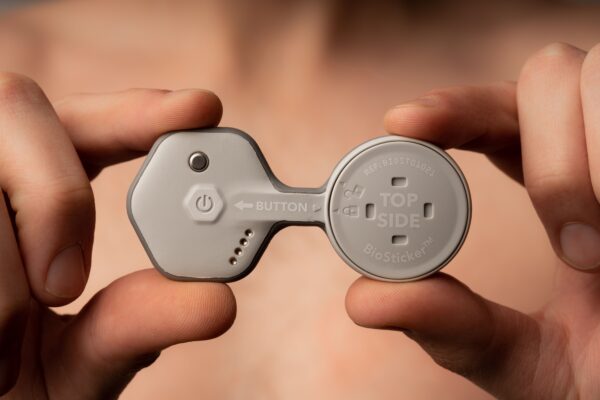 The Latest Trends in Medical Monitoring Wearable Devices
The Latest Trends in Medical Monitoring Wearable Devices
Tags: Innovation, IoT, HealthTech
Location: Virtual Fees: 2000
Service Type: Service Offered
 Elevate Your Healthcare Leadership
Elevate Your Healthcare Leadership Transforming Healthcare with Wearables and AI
Transforming Healthcare with Wearables and AI Cleveland Clinic & AI Solutions for Healthcare
Cleveland Clinic & AI Solutions for Healthcare